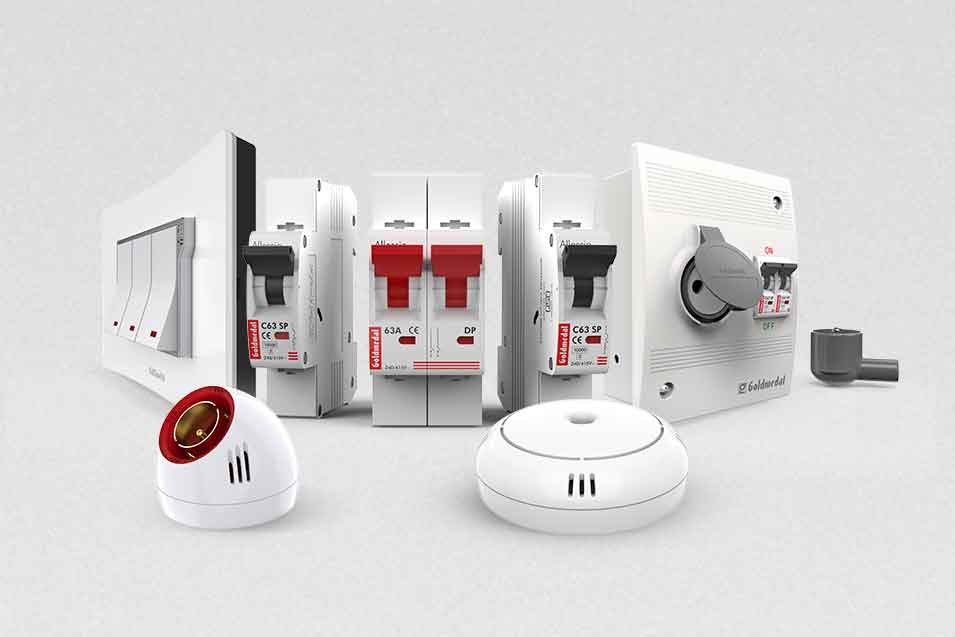
Protect Your Home from Electrical Mishaps with These Tips and Precautions
Electricity powers our modern world, lighting our homes and keeping our devices running. But with this convenience comes risks. If not handled correctly, electricity can cause shocks, fires, and even severe injuries. The safety of our homes and families is paramount. This blog will delve into key measures and steps to ensure you’re protected from potential electrical dangers in your living space.
- Schedule Regular Electrical Inspections:- Just like you visit the doctor for regular check-ups, your home’s electrical system also needs inspections. Engage a licensed electrician to perform a thorough inspection of your home’s wiring, outlets, switches, and circuit breaker panel. This proactive approach can help identify potential issues before they escalate into hazardous situations.
- Avoid Overloading Circuits:- Plugging too many devices into a single outlet or power strip can overload the circuit and lead to overheating, which increases the risk of fires. Distribute your devices across different outlets and circuits to prevent overloading. Consider using surge protectors with built-in overload protection to safeguard your devices and your home.
- Upgrade Outdated Wiring:- Older homes might have outdated wiring that doesn’t meet modern safety standards. If your home’s wiring is several decades old, consider investing in rewiring to ensure it can handle the electrical demands of today’s technology. Faulty wiring is a major cause of electrical mishaps, so this upgrade can significantly reduce risks.
- Childproof Electrical Outlets:- If you have young children at home, childproofing your electrical outlets is crucial. Insert safety covers or outlet plugs to prevent children from sticking objects into outlets, which can result in electrical shocks. Additionally, educate your children about the dangers of playing with electrical outlets and cords.
- Use Appliances Wisely:- Appliances that generate heat, such as space heaters, toasters, and irons, can be potential fire hazards. Place them on stable, non-flammable surfaces and keep them away from combustible materials. Always unplug these appliances when they’re not in use to minimize the risk of electrical mishaps.
- Install Ground Fault Circuit Interrupters (GFCIs):- GFCIs are specialized outlets that protect against electrical shock by immediately cutting off power when they detect a fault in the circuit. Install GFCIs in areas with water, such as kitchens, bathrooms, and outdoor outlets, as water increases the risk of electrical shock.
- Maintain Outdoor Electrical Safety:- Outdoor electrical outlets and wiring are exposed to weather conditions, which can lead to wear and tear. Ensure that all outdoor outlets have weatherproof covers and keep them dry. Use outdoor extension cords designed for outdoor use and store them indoors when not in use.
- Respect Wattage Ratings:- Every electrical device comes with a wattage rating that indicates the maximum power it can handle safely. Exceeding this rating can lead to overheating and potential hazards. Check the wattage of your devices and make sure they’re compatible with the outlets and extension cords you’re using.
Conclusion
Protecting your home from electrical mishaps is a responsibility that shouldn’t be taken lightly. By following these tips and precautions, you can create a safer environment for your family and reduce the risk of electrical hazards. Regular maintenance, proper usage of electrical devices, and staying informed about best practices are all essential steps in ensuring the safety and well-being of your home. Remember, electrical safety is not just a choice; it’s a necessity.

Frequently Asked Questions (FAQs) :
Q1. What should I do if someone experiences an electrical shock?
If you or someone experiences an electrical shock, prioritize safety. If safe to do so, turn off the electricity source. If not, use a dry, non-conductive object like cardboard, plastic, or wood to carefully move the source away from both you and the injured person, ensuring no direct contact. Assess the person’s condition – if they’re unresponsive and not breathing, initiate CPR immediately. Electrical shocks can be life-threatening, so dial 102 for medical ambulance and wait for medical assistance.
Q2. How can I prevent electrical fires at home?
Protecting your home from electrical fires involves awareness and simple precautions. Avoid overloading outlets or using frayed cords. Regularly check appliances for signs of wear. Always unplug devices when not in use. Ensure your home has up-to-date smoke alarms and consider arc-fault circuit interrupters. Seek a professional electrician’s advice for any doubts. Remember, safety isn’t just about rules; it’s about safeguarding our loved ones.
Q3. What causes power surges, and how can I protect my devices from them?
Power surges are sudden voltage increases caused by events like lightning strikes, power outages, or large appliances turning on/off. To protect your devices, refer the following:
- Surge Protectors:-Use high-quality surge protectors for valuable electronics. They divert excess voltage away, safeguarding connected devices.
- Unplug During Storms:-If a storm is forecasted, disconnect sensitive electronics to prevent lightning-induced surges.
- Invest in Whole-House Surge Protection:-Installed at your main electrical panel, this shields all home circuits from large surges. Consult an electrician for installation.
Q4. Can I fix faulty wiring myself?
While the DIY spirit is commendable, fixing faulty wiring isn’t a typical weekend project. Wiring is intricate and requires a deep understanding to ensure safety and functionality. Mistakes can lead to fires, electric shocks, or further damage. For the safety of your home and loved ones, it’s best to call a professional electrician. To ensure your safety and the integrity of your home and loved ones, always rely on professionals when dealing with wiring issues.
Q5. What are the signs of faulty wiring in a building?
Recognizing faulty wiring can protect your home and family. Warning signs include frequent circuit breaker trips, flickering lights, a persistent burning smell without an identifiable source, discoloured outlets, or experiencing mild shocks from switches and outlets. If you hear a buzzing sound from your electrical system or see sparks, take immediate action. These signals aren’t just inconveniences; they’re your home’s way of whispering for help. Always consult an electrician to ensure safety and peace of mind.
Q6. How often should I have my home’s electrical system inspected?
Regular check-ups aren’t just for us, but for our homes too. Ideally, have your home’s electrical system inspected every 3-5 years. For older homes, consider more frequent checks. Just as we cherish family memories, we should ensure the heart of our home’s power beats safely. Routine inspections by a trusted electrician can prevent surprises, safeguarding both precious moments and those we share them with. Always prioritize safety and well-being.
Q7. Can I perform DIY electrical repairs to save money?
The desire to save and be self-sufficient is natural. However, DIY electrical repairs can be risky. Electricity isn’t forgiving; a small mistake could lead to shocks, fires, or costly damage. It’s about balancing thriftiness with the safety of your home and loved ones. Remember, some things are priceless, like peace of mind and family well-being. For electrical concerns, it’s often wisest to lean on professional expertise, ensuring your home remains a safe haven.




